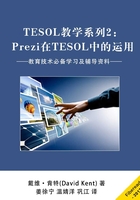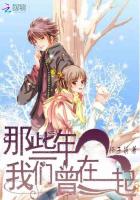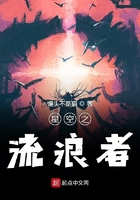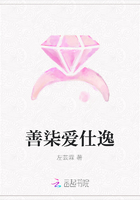The Ukrainian translation of Animal Farm was intended for Ukrainians living in the camps for Displaced Persons in Germany under British and American administration after World War II. These, as indicated in a letter from the man who organized the translation and distribution, Ihor Szewczenko, were people who supported the October Revolution and who were determined to defend what had been won, but who had turned against‘the counter-revolutionary Bonapartism of Stalin’and the‘Russian nationalistic exploitation of the Ukrainian people’. They were simple people, peasants and workers, some half-educated, but all of whom read eagerly. For these people he asked Orwell to write a special introduction. The English original has been lost and the version reproduced here is a recasting back into English of the Ukrainian version. Orwell insisted that he receive no royalties for this edition, nor for other translations intended for those too poor to buy them (e. g. , editions in Persian and Telugu). Orwell himself paid the production costs of a Russian-language edition printed on thin paper, which was intended for soldiers and others behind the Iron Curtain.
I have been asked to write a preface to the Ukrainian translation of Animal Farm. I am aware that I write for readers about whom I know nothing, but also that they too have probably never had the slightest opportunity to know anything about me.
In this preface they will most likely expect me to say something of how Animal Farm originated but first I would like to say something about myself and the experiences by which I arrived at my political position.
I was born in India in 1903. My father was an official in the English administration there, and my family was one of those ordinary middle-class families of soldiers, clergymen, government officials, teachers, lawyers, doctors, etc. I was educated at Eton, the most costly and snobbish of the English Public Schools. [2]But I had only got in there by means of a scholarship;otherwise my father could not have afforded to send me to a school of this type.
Shortly after I left school (I wasn't quite twenty years old then) I went to Burma and joined the Indian Imperial Police. This was an armed police, a sort of gendarmerie very similar to the Spanish Guardia Civil or the Garde Mobile in France. I stayed five years in the service. It did not suit me and made me hate imperialism, although at that time nationalist feelings in Burma were not very marked, and relations between the English and the Burmese were not particularly unfriendly. When on leave in England in 1927, I resigned from the service and decided to become a writer: at first without any especial success. In 1928-9 I lived in Paris and wrote short stories and novels that nobody would print (I have since destroyed them all). In the following years I lived mostly from hand to mouth, and went hungry on several occasions. It was only from 1934 onwards that I was able to live on what I earned from my writing. In the meantime I sometimes lived for months on end amongst the poor and half-criminal elements who inhabit the worst parts of the poorer quarters, or take to the streets, begging and stealing. At that time I associated with them through lack of money, but later their way of life interested me very much for its own sake. I spent many months (more systematically this time) studying the conditions of the miners in the north of England. Up to 1930 I did not on the whole look upon myself as a Socialist. In fact I had as yet no clearly defined political views. I became pro-Socialist more out of disgust with the way the poorer section of the industrial workers were oppressed and neglected than out of any theoretical admiration for a planned society.
In 1936 I got married. In almost the same week the civil war broke out in Spain. My wife and I both wanted to go to Spain and fight for the Spanish Government. We were ready in six months, as soon as I had finished the book I was writing. In Spain I spent almost six months on the Aragon front until, at Huesca, a Fascist sniper shot me through the throat.
In the early stages of the war foreigners were on the whole unaware of the inner struggles between the various political parties supporting the Government. Through a series of accidents I joined not the International Brigade like the majority of foreigners, but the POUM militia-i. e. the Spanish Trotskyists.
So in the middle of 1937, when the Communists gained control (or partial control) of the Spanish Government and began to hunt down the Trotskyists, we both found ourselves amongst the victims. We were very lucky to get out of Spain alive, and not even to have been arrested once. Many of our friends were shot, and others spent a long time in prison or simply disappeared.
These man-hunts in Spain went on at the same time as the great purges in the USSR and were a sort of supplement to them. In Spain as well as in Russia the nature of the accusations (namely, conspiracy with the Facists) was the same and as far as Spain was concerned I had every reason to believe that the accusations were false. To experience all this was a valuable object lesson: it taught me how easily totalitarian propaganda can control the opinion of enlightened people in democratic countries.
My wife and I both saw innocent people being thrown into prison merely because they were suspected of unorthodoxy. Yet on our return to England we found numerous sensible and well-informed observers believing the most fantastic accounts of conspiracy, treachery and sabotage which the press reported from the Moscow trials.
And so I understood, more clearly than ever, the negative influence of the Soviet myth upon the western Socialist movement.
And here I must pause to describe my attitude to the Soviet rhime.
I have never visited Russia and my knowledge of it consists only of what can be learned by reading books and newspapers. Even if I had the power, I would not wish to interfere in Soviet domestic affairs: I would not condemn Stalin and his associates merely for their barbaric and undemocratic methods. It is quite possible that, even with the best intentions, they could not have acted otherwise under the conditions prevailing there.
But on the other hand it was of the utmost importance to me that people in western Europe should see the Soviet rhime for what it really was. Since 1930 I had seen little evidence that the USSR was progressing towards anything that one could truly call Socialism. On the contrary, I was struck by clear signs of its transformation into a hierarchical society, in which the rulers have no more reason to give up their power than any other ruling class. Moreover, the workers and intelligentsia in a country like England cannot understand that the USSR of today is altogether different from what it was in 1917. It is partly that they do not want to understand (i. e. they want to believe that, somewhere, a really Socialist country does actually exist), and partly that, being accustomed to comparative freedom and moderation in public life, totalitarianism is completely incomprehensible to them.
Yet one must remember that England is not completely democratic. It is also a capitalist country with great class privileges and (even now, after a war that has tended to equalize everybody) with great differences in wealth. But nevertheless it is a country in which people have lived together for several hundred years without major conflict, in which the laws are relatively just and official news and statistics can almost invariably be believed, and, last but not least, in which to hold and to voice minority views does not involve any mortal danger. In such an atmosphere the man in the street has no real understanding of things like concentration camps, mass deportations, arrests without trial, press censorship, etc. Everything he reads about a country like the USSR is automatically translated into English terms, and he quite innocently accepts the lies of totalitarian propaganda. Up to 1939, and even later, the majority of English people were incapable of assessing the true nature of the Nazi réhime in Germany, and now, with the Soviet réhime, they are still to a large extent under the same sort of illusion.
This has caused great harm to the Socialist movement in England, and had serious consequences for English foreign policy. Indeed, in my opinion, nothing has contributed so much to the corruption of the original idea of Socialism as the belief that Russia is a Socialist country and that every act of its rulers must be excused, if not imitated.
And so for the past ten years I have been convinced that the destruction of the Soviet myth was essential if we wanted a revival of the Socialist movement.
On my return from Spain I thought of exposing the Soviet myth in a story that could be easily understood by almost anyone and which could be easily translated into other languages. However, the actual details of the story did not come to me for some time until one day (I was then living in a small village) I saw a little boy, perhaps ten years old, driving a huge cart-horse along a narrow path, whipping it whenever it tried to turn. It struck me that if only such animals became aware of their strength we should have no power over them, and that men exploit animals in much the same way as the rich exploit the proletariat.
I proceeded to analyse Marx's theory from the animals' point of view. To them it was clear that the concept of a class struggle between humans was pure illusion, since whenever it was necessary to exploit animals, all humans united against them: the true struggle is between animals and humans. From this point of departure, it was not difficult to elaborate the story. I did not write it out till 1943, for I was always engaged on other work which gave me no time;and in the end I included some events, for example the Teheran Conference, which were taking place while I was writing. Thus the main outlines of the story were in my mind over a period of six years before it was actually written.
I do not wish to comment on the work;if it does not speak for itself, it is a failure. But I should like to emphasize two points: first, that although the various episodes are taken from the actual history of the Russian Revolution, they are dealt with schematically and their chronological order is changed;this was necessary for the symmetry of the story. The second point has been missed by most critics, possibly because I did not emphasize it sufficiently. A number of readers may finish the book with the impression that it ends in the complete reconciliation of the pigs and the humans. That was not my intention;on the contrary I meant it to end on a loud note of discord, for I wrote it immediately after the Teheran Conference which everybody thought had established the best possible relations between the USSR and the West. I personally did not believe that such good relations would last long;and, as events have shown, I wasn't far wrong.
I don't know what more I need add. If anyone is interested in personal details, I should add that I am a widower with a son almost three years old, that by profession I am a writer, and that since the beginning of the war I have worked mainly as a journalist.
The periodical to which I contribute most regularly is Tribune, a socio-political weekly which represents, generally speaking, the left wing of the Labour Party. The following of my books might most interest the ordinary reader (should any reader of this translation find copies of them): Burmese Days (a story about Burma), Homage to Catalonia (arising from my experiences in the Spanish Civil War), and Critical Essays (essays mainly about contemporary popular English literature and instructive more from the sociological than from the literary point of view).















